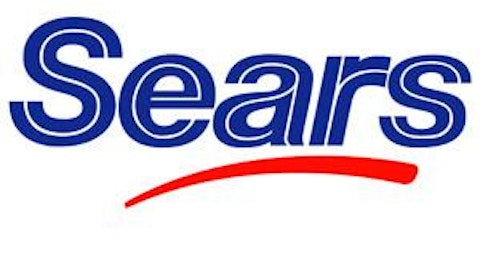The retail industry had a terrific 2012. However, that has led to high expectations from the Street. Apart from this, certain headwinds have appeared that have put a big question on certain retailers’ ability to re-perform in 2013. The most common concerns have been the rising use of Internet/online shopping/e-commerce and high valuations. Let’s view this with the example of three retailers.
Barnes & Noble, Inc. (NYSE:BKS): After missing holiday sales expectations, the investment question for B&N in 2013 is the NOOK’s (bookstore division) staying power. B&N’s management deserves credit for its string of successful e-reader products and its solid market share. However, given the ongoing convergence of e-readers and tablets, whether the NOOK can sustain itself as a legitimate technology player in this space moving forward remains a major question for investors in this name, particularly given the presence of much larger competitors, including Amazon.com, Inc. (NASDAQ:AMZN), Apple Inc. (NASDAQ:AAPL), Google Inc (NASDAQ:GOOG), Samsung, and even B&N’s NOOK partner, Microsoft Corporation (NASDAQ:MSFT).

PetSmart, Inc. (NASDAQ:PETM): PetSmart is a name that most people in the Street like. The Street expects solid stock performance in 2013, as the company benefits from household formation, product innovation, positive secular trends, strong internal merchandising initiatives, operating improvements in services business and a relatively tame competitive environment. While the story seems to have become more controversial lately, valuation is skewed to the upside at a forward multiple of 16.5x and a 2013 EPS estimate of $3.87. The greatest perceived risk to this story, the e-commerce threat, seems to be overstated at the moment, as PetSmart’s store experience, services, and exclusive products provide protection from this threat and help insulate the value of the franchise. Thus, Street’s bullish stance seems plausible given the double-digit EPS growth story.
Sears Holdings Corporation (NASDAQ:SHLD): The majority of analysts are bearish on the stock. The major issue with the stock remains its declining operating results. Not only this, the company seems to have a problem with its balance sheet, and some believe that Sears’ assets are not worth as much as commonly believed. The stock trades at a forward multiple of ~20x, which is by far the most expensive name in its space. This fiscal year, the Street is projecting that Sears will end up with $488 million of EBITDA, which will include $89 million of EBITDA from Sears Hometown and Outlet Stores. Therefore, Sears will be starting next year at a run rate close to $399 million in EBITDA, and there seem to be some challenges for the company to significantly improve from this level. It is interesting to note that over $100 million of EBITDA in 2012 was a benefit of J.C. Penney Company, Inc. (NYSE:JCP) struggling, something that Sears investors shouldn’t continue to count on in the future.
Moreover, 2012 was a relatively tranquil appliance market from a promotional perspective, which may not be the case in FY 13. Nonetheless, there is no liquidity issue at the company, as the company has ample assets to sell and could continue to pull down inventory. However, the expectation that 2013 will be the third consecutive year of negative cash flow for the company raises the question of why operate? If Sears’ asset values are so good, why is Sears giving back four to five dollars a share in operating cash flow losses each year? Till the market gets solid answers for these questions, the stock remains a sell.
Foolish Bottom Line
One can decipher that higher valuations may not be justified for certain retailer players until and unless they bring some innovation to their business model that can help them to sustain earnings growth. Another conclusion that we can draw is that the rising use of Internet has been boon for some and a bane for others.
The article Are These Higher Valuations Justified? originally appeared on Fool.com and is written by Masam Abbas.
Copyright © 1995 – 2013 The Motley Fool, LLC. All rights reserved. The Motley Fool has a disclosure policy.



